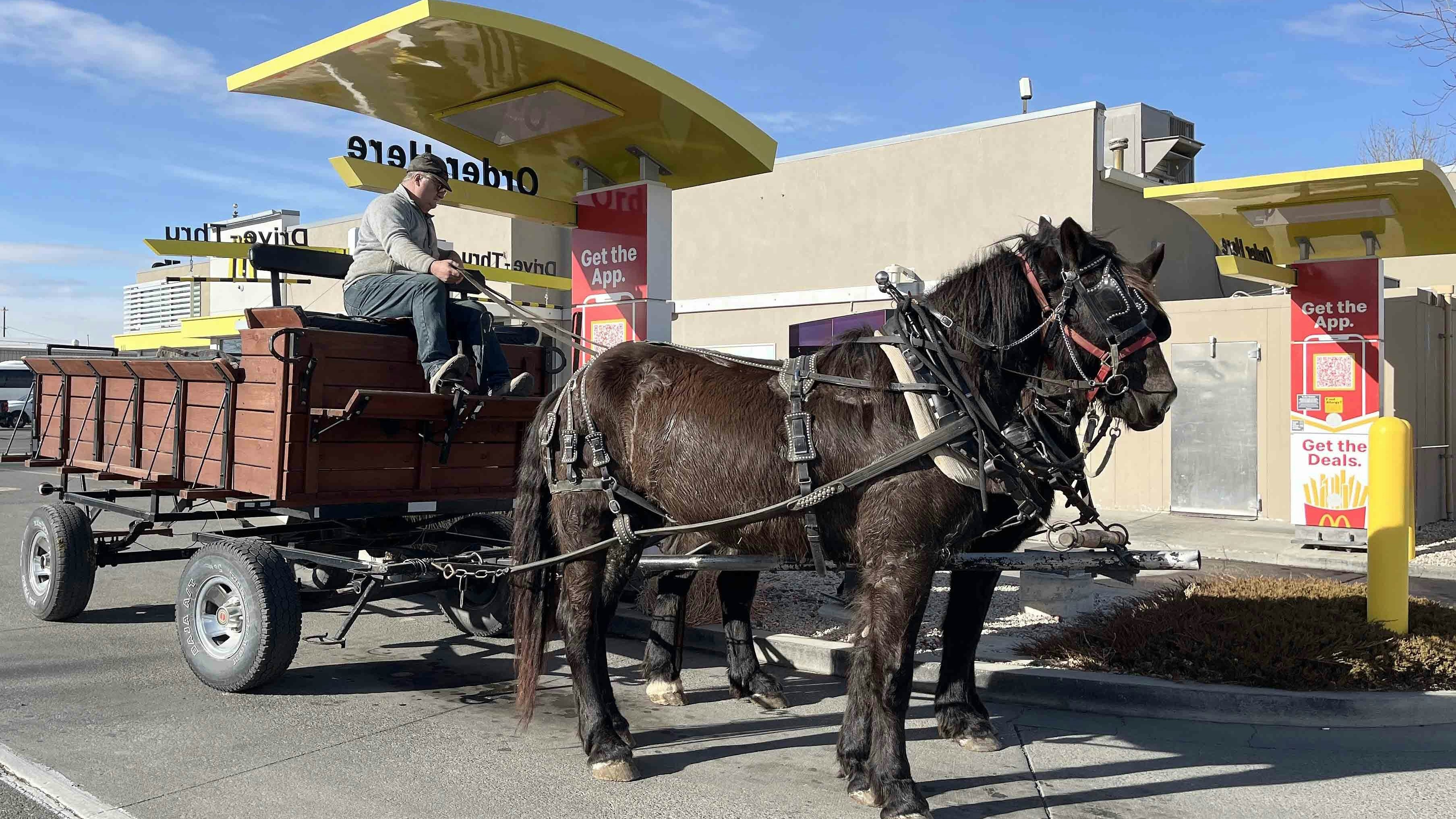For 11 months out of the year, superstitions about black cats work against them.
Then October rolls around, and suddenly their association with witchcraft, bad luck, and as harbingers of death that make them taboo the rest of the year makes them desirable.
Many animal welfare experts express concern that people might adopt black cats around Halloween solely as "living decorations" rather than to give them permanent homes.
That’s why a Spanish animal shelter made headlines by banning the adoption of black cats from Oct. 1 through Nov. 10. Animal welfare services in Terrassa, a town north of Barcelona, said the temporary ban was to protect black cats from dangerous rituals and superstitions associated with Halloween.
Wyoming doesn't need to enact a ban on black cat adoptions. Nobody seems to want them, regardless of the season.
In the Cowboy State, "There is no relationship between people wanting more black cats and Halloween," said Rachel Kristiansen, executive director of Second Chance Sheridan Cat Rescue. "We've actually had Halloween adoption promotions in the past because black cats are harder to adopt than others."
Superstitious Nonsense
The historical symbolism of black cats is mixed. While many people associate them with bad luck, witchcraft, or that they steal souls, many cultures also view them as good omens.
The idea that people might adopt a black cat around Halloween not as a pet, but an accessory to a haunted house or holiday party is "one of the biggest animal shelter myths,” said Kristiansen.
"There were old European superstitions that linked black cats with witches and magic," she said. "Those myths have grown, especially around Halloween, into people thinking that black cats are going to be sacrificed or other awful things.
"In reality, there have been multiple organizations and research studies trying to find any connection with people doing these things, and there's never been a single instance or case of someone doing something bad to a black cat because it's Halloween."
Even if someone had such a goal, the adoption process is rigorous enough that any unsavory intentions would likely be caught before approval. It's something Kristiansen has never encountered.
Lydia Gomez, supervisor of Rock Springs Animal Control, has been working in the field for 13 years. She also hasn't encountered any nefarious doings involving black cats around Halloween.
"I've never had a call concerning people abusing a black cat or a cat during that timeframe," she said. "I'm not saying that it doesn't happen, but I have personally never seen any Halloween-associated abuse of any cat during the Halloween season."
Black Cat Bias
People might not act on superstitions about black cats, but they do seem to be associated with a curse that prevents them from finding homes.
Both Gomez and Kristiansen discussed the “black cat bias” that, in their experience, make them the hardest to place in homes.
"Black cats and black dogs get overlooked in shelters all the time," Kristiansen said. "They are the last to get adopted."
There have been several studies examining "black dog syndrome" to determine whether dogs with lighter coats are preferred over those with darker coats.
Most of those studies found little to no correlation between a dog's color and its likelihood of being adopted.
Gomez, however, said the evidence of bias against black cats and dogs has been persistent throughout her career.
"It's very true and has been a theme for as long as I've been in animal control," she said. "Black animals are harder to adopt.
"We have a bunch of black cats at the shelter right now, and I haven't had anyone show any interest in them whatsoever."
There aren't any definitive explanations for why people would avoid adopting black animals, but Kristiansen has a few thoughts. She believes it boils down to perceptions based on color and camera angles.
"Black cats do not photograph well," she said. "Our cameras do not pick (them) up well, so you just get a photo of a black blob instead of a good expression that you do with a lot of other animals.
"But even when people visit in person, everybody seems to want a pretty pattern, or they're attracted to the calico attitude or the orange cat goofiness. People overlook the black cats."
Coming In Costume
People might not want a black cat for a cultic ritual or Halloween décor in October, but that's just a continuation of the hard life black cats seem to face when trying to find homes.
Rather than banning black cat adoptions around Halloween, Kristiansen tries to leverage the holiday to boost their visibility and adoptability.
"We make jokes about it," she said. "Black cats are already dressed for Halloween. You can put them in your windowsill, and it'll be great for trick-or-treaters. We don't see a problem with Halloween at all."
Beyond Halloween, Kristiansen said black cats tend to be "laid back and sweet" and like to cuddle.
If anything, she hopes more people will embrace the historical omens of black cats and give them a place of honor in their own homes.
"There's no reason for us to pause adoptions, and certainly no reason for us to prohibit black cats from getting adopted," she said. "We encourage people to adopt black cats year-round, and we're certainly not afraid of anyone doing anything on Halloween."
Andrew Rossi can be reached at arossi@cowboystatedaily.com.





